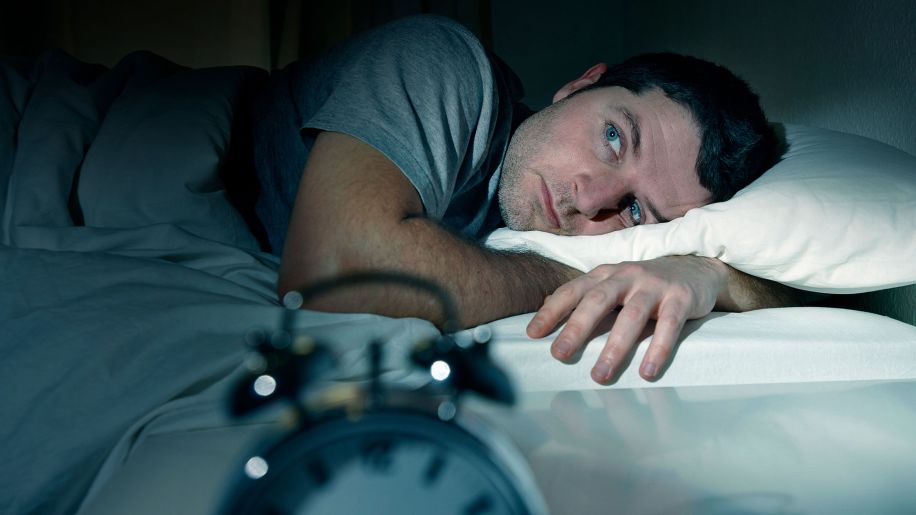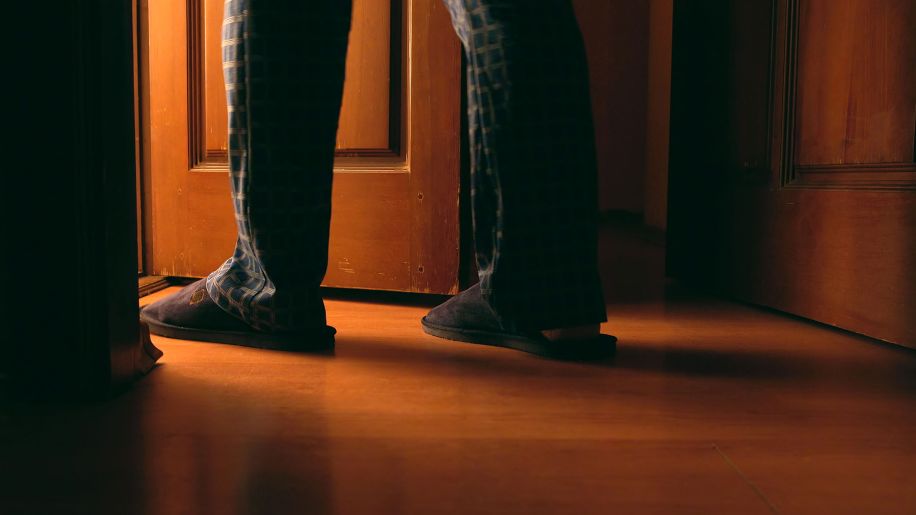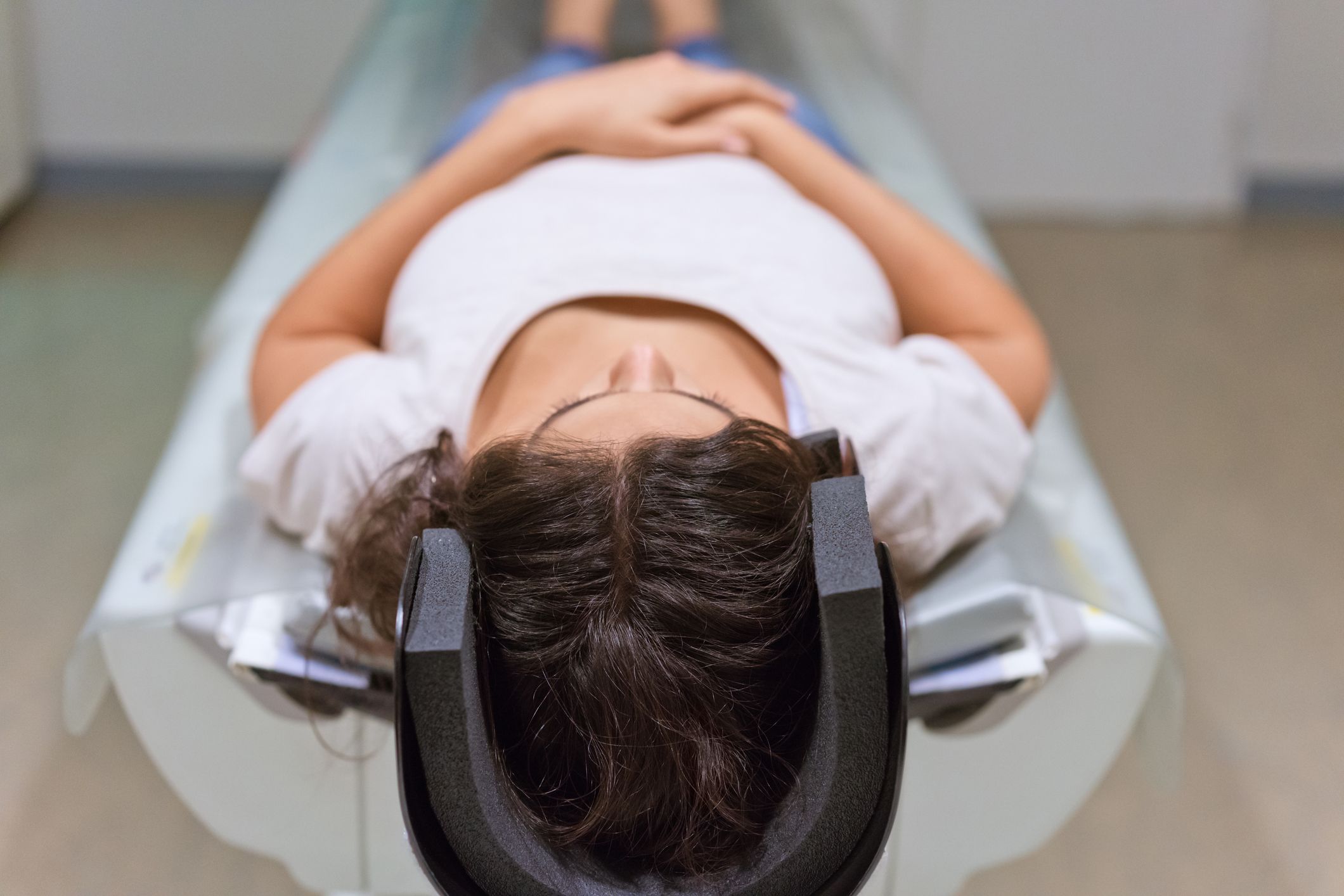Get a good night’s sleep with multiple sclerosis
Find relief from common MS symptoms—and finally rest easy.

If you have multiple sclerosis (MS), getting a good night’s rest may seem elusive. According to the National Multiple Sclerosis Society, you’re three times as likely to have sleep disturbances as those without the condition, and twice as likely to experience a reduced quality of sleep.
Common problems include insomnia (difficulty falling asleep or staying asleep),… Show More
If you have multiple sclerosis (MS), getting a good night’s rest may seem elusive. According to the National Multiple Sclerosis Society, you’re three times as likely to have sleep disturbances as those without the condition, and twice as likely to experience a reduced quality of sleep.
Common problems include insomnia (difficulty falling asleep or staying asleep), hypersomnia (sleeping too much), narcolepsy (uncontrollable lapses into sleep), sleep apnea and restless legs syndrome (characterized by abnormal movements during sleep).
“Almost half my patients with multiple sclerosis demonstrate sleep problems,” says Ali Najar, MD, who specializes in pulmonology/critical care and sleep medicine at Saint Joseph Mercy Health System in Auburn Hills, Michigan. In order to find relief, “it is very important to pinpoint what kind of sleep disturbance we are dealing with,” he says. Here are the most common symptoms that can interfere with your rest—and a few solutions.

Loosen tight muscles
A common symptom among those with multiple sclerosis is spasticity, in which tight, even rigid muscles cause pain—enough so to interfere with sleep. It may also be tough to find a comfortable position, and just moving around to turn in bed can be difficult.
What to do: Consider installing rails on… Show More
A common symptom among those with multiple sclerosis is spasticity, in which tight, even rigid muscles cause pain—enough so to interfere with sleep. It may also be tough to find a comfortable position, and just moving around to turn in bed can be difficult.
What to do: Consider installing rails on one side of the bed, which will enable you to use your hands to change positions. If you have a partner, he or she may be able to help you rearrange yourself, too, though it’s important for loved ones to get a good night’s rest as well.
Stretching and exercise can help reduce spasticity, and you may want to consider a consultation with a physical therapist to help you learn the proper techniques. Non-cardio exercises such as yoga and seated stretches may help you not only manage your MS symptoms, but promote your overall health.
Show Less
Beat the bathroom blues
At least 80 percent of people with MS have bladder dysfunction, according to the National Multiple Sclerosis Society. An overactive, or spastic, bladder that can’t hold the normal amount of urine, or that retains urine, can cause symptoms like urinary frequency and frequent nighttime urination (… Show More
At least 80 percent of people with MS have bladder dysfunction, according to the National Multiple Sclerosis Society. An overactive, or spastic, bladder that can’t hold the normal amount of urine, or that retains urine, can cause symptoms like urinary frequency and frequent nighttime urination (nocturia). This can cause broken sleep, especially when there are multiple trips to the bathroom in one night.
What to do: To help combat the need to urinate frequently at night, drink as you usually do during the day, but have your last beverage around three hours before bedtime. Avoid drinks with caffeine, which acts as a stimulant on the bladder, and steer clear of alcoholic beverages before bed. Having a glass of wine can help you fall asleep initially, but alcohol has a “rebound” effect that can cause you to wake up in the middle of the night. Talk to your doctor about the range of prescription medications that might work for you.
Show Less
Ease chronic pain
Pain from spasticity is just one kind of discomfort affecting those with MS. But acute and chronic pain are common as well and can disrupt sleep. In fact, in one study, 55 percent of people with MS had “clinically significant pain” at some time and 48 percent were plagued by chronic pain.… Show More
Pain from spasticity is just one kind of discomfort affecting those with MS. But acute and chronic pain are common as well and can disrupt sleep. In fact, in one study, 55 percent of people with MS had “clinically significant pain” at some time and 48 percent were plagued by chronic pain. Additionally, twice as many women as men experienced MS pain, according to research.
What to do: Medications such as a certain antidepressant (duloxetine), which can modify how the central nervous system reacts to pain, may be tried for acute pain. Additionally, wearing a pressure stocking or glove, may be advised; it can help by shifting sensations of pain to sensations of pressure. Other options include warm compresses to the skin and over-the-counter acetaminophen (under a doctor’s supervision). For chronic disabling pain, a multidisciplinary pain clinic may recommend medication along with alternative therapies like yoga, acupuncture, biofeedback, massage or meditation.
Show Less
Find help for depression
One of the most common symptoms of multiple sclerosis is depression; it’s thought that inflammation may be a contributing factor. (It’s also common in other neuroinflammatory diseases, like rheumatoid arthritis and inflammatory bowel disease.) Depression can cause two different types of sleep… Show More
One of the most common symptoms of multiple sclerosis is depression; it’s thought that inflammation may be a contributing factor. (It’s also common in other neuroinflammatory diseases, like rheumatoid arthritis and inflammatory bowel disease.) Depression can cause two different types of sleep disturbance for those with MS: insomnia or excessive sleeping.
What to do: Both psychotherapy and antidepressant medications are often necessary to treat clinical depression. Since an individual’s response to a particular antidepressant drug can vary widely, several different medications and doses may need to be tried before results are seen. For milder depression, MS support groups (including those online) can also be helpful.
Show Less
Practice good sleep hygiene
No matter what is keeping you up, good sleep hygiene is crucial. “I advise my patients to have a regular bedtime,” Najar says. “Go to bed at the same time every night and have a regular time to rise in the morning.” Other tips:
- Practice “stimulus control.” This means no TV and no electronics in … Show More
No matter what is keeping you up, good sleep hygiene is crucial. “I advise my patients to have a regular bedtime,” Najar says. “Go to bed at the same time every night and have a regular time to rise in the morning.” Other tips:
- Practice “stimulus control.” This means no TV and no electronics in the bedroom, which should only be used for sleeping.
- If you smoke, stop. Nicotine is a potent stimulant, and “predisposes patients to a worsening of any sleep disorder,” says Najar.
- Don’t eat late at night. Eating a heavy or spicy meal just before bed can disrupt sleep, according to the National Sleep Foundation.
- Avoid exercising in the evening.
What else to do: Give yourself no more than half an hour to fall asleep. After that, if you are still awake, get out of bed, Najar advises. “Do something relaxing,” he says. “Only get back into bed when you feel sleepy.” A soothing bath can help ease stress and release muscle tension.
If you tend to start worrying about anything and everything as soon as your head hits the pillow, switch up the timing of your worrying routine. “The racing thoughts that can occur once you start ruminating about life can leave you with sleep onset insomnia,” says Najar. Instead, set aside some specific time for worrying. It could be morning or afternoon, but try to limit it to 15 minutes. Permit yourself to worry about whatever you want, and then at bedtime, make a conscious decision to leave your cares behind.
Show Less
Consider a sleep study
If symptoms like pain from spasticity wake you or restless limbs make sleeping difficult, your doctor may recommend a formal sleep study. This typically is an overnight observation of your sleep behaviors and takes place at a sleep center. At the sleep center, a specialist will diagnose whether you… Show More
If symptoms like pain from spasticity wake you or restless limbs make sleeping difficult, your doctor may recommend a formal sleep study. This typically is an overnight observation of your sleep behaviors and takes place at a sleep center. At the sleep center, a specialist will diagnose whether you are dealing with insomnia, restless legs syndrome or another sleep disorder, Najar says.
Among the tests that a sleep specialist may order are a polysomnogram, or PSG. For this, you wear lightweight wires that monitor and record body functions during sleep such as heart rate, breathing rate, blood pressure and brain activity.
You may also be given a multiple sleep latency test (MSLT), which measures how long it takes you to fall asleep, and a maintenance of wakefulness test (MWT), which determines if you can stay awake during a time when you would normally be awake. Treatment can vary depending upon which sleep disorder you may have, Najar says, so getting the proper diagnosis is key.
Show Less
Try Cognitive Behavioral Therapy for Insomnia
Cognitive Behavioral Therapy for Insomnia, often called CBT-I, is a way to treat insomnia without sleeping pills. “Cognitive behavioral therapy is the first line of treatment for insomnia as a whole and can be of real benefit to people with MS,” Naraj says. In cognitive behavioral therapy, a… Show More
Cognitive Behavioral Therapy for Insomnia, often called CBT-I, is a way to treat insomnia without sleeping pills. “Cognitive behavioral therapy is the first line of treatment for insomnia as a whole and can be of real benefit to people with MS,” Naraj says. In cognitive behavioral therapy, a clinician works with you in regular sessions (usually weekly), making concrete suggestions to help you change the way you sleep. You may be asked to maintain a sleep diary.
All told, there are a variety of strategies that can help a person with MS get better rest. Once you and your healthcare provider determine which symptoms are keeping you up, the appropriate therapy will be recommended so that you may start treatments that can help.
Show LessFeatured Content

article

article

article


video

article
